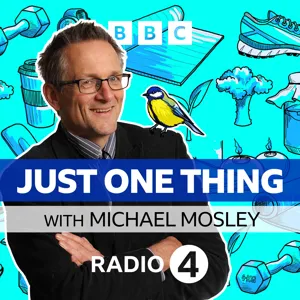Podcast Summary
Learning a new skill, like dancing, can improve brain health: Learning new skills, especially those that require both mental and physical effort, can help build up neural pathways and improve overall brain function
Challenging your coordination by learning something new, particularly a physical and mental activity like dancing, can significantly improve your brain health. Our brains are tangible organs that can be strengthened through various means, and learning new skills, especially those that require both mental and physical effort, can help build up neural pathways and improve overall brain function. As Kate Cocker shared in her story, even if you're not naturally good at it, the effort and experience can lead to improved brain health and create cherished memories. So, next time you're looking for a way to boost your brain power, consider learning a new dance or trying out a new physical and mental activity.
Boost Brain Health with Dance: Dancing, especially learning new choreographed moves, can enhance brain function by improving coordination between mental and physical activities, boosting mood, and enhancing memory
Incorporating dance into your daily routine, especially learning choreographed dances, can have positive effects on brain health. Dancing in the kitchen or learning a new dance, such as the Beyonce "Single Ladies" dance, requires coordination between mental and physical learning, which can improve brain function. It doesn't have to be a complex or strenuous dance, but rather something new and repeated until mastered. This simple activity can help boost your mood, memory, and overall brain health. So, put on some music, learn a new dance, and enjoy the benefits for your brain. Additionally, consider signing up for the "Everyday Positivity: Put Yourself First" journal journey at journal30.com for 31 days of journal prompts to help you reconnect with yourself and improve your well-being. Remember, you've got this!




